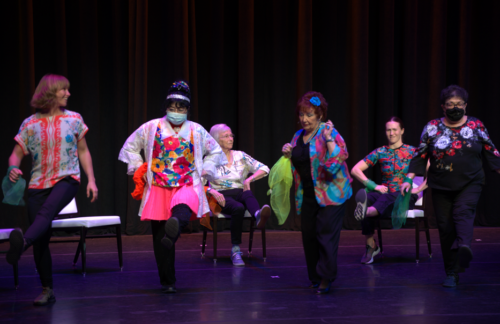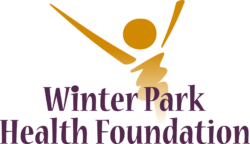Good health is hard to come by and if you’re feeling stressed, it can be even more difficult to restore it.
Today, we tend to experience several stresses: chronic illness, financial obligations, politics, even staying connected with our loved ones, like our children or grandchildren.
Combating stress is no picnic in the park. It can lead us off the beaten path of active aging. However, there are quick, easy options you can implement in your everyday life to have you feeling rejuvenated and stress-free. Whether it’s caring for a loved one or making ends meet, here are three top ways to stop stress, have fun and rejuvenate yourself to get right back on track:
1. Try a Digital Detox.
Your phone’s not the only thing that needs recharging. We all need a recharge occasionally from the constant stimulation of technology. Jill Hamilton-Buss, a licensed mental health counselor and host of several programs at the Center for Health and Wellbeing, says that technology affects not only our mind, but our body and soul as well.

“Cognitively, technology can make us more forgetful, confused, fuzzy and emotionally, we’re just irritable and hyper-sensitive,” she said. “Technology impacts us physically, behavioral, cognitively and emotionally so it’s not good and we know that.”
Studies show too much social media is linked to social media addiction and too much sitting, which lowers one’s cardiovascular health. We also know that using too much social media can lead to depression and anxiety. Although technology is instilled in our everyday life, we don’t need to let it run us.
Hamilton-Buss advises reducing or eliminating social media, gaming and television. Do not game, use your phone or watch TV prior to bedtime. Delete unnecessary or irritating apps from your phone, she says. The first step in rejuvenating yourself is to cut down on screen time and play more. Playing more outside lessens your time on your device while increasing your active involvement in the community. It can be as simple as going outside, breathing in fresh air or joining an active group activity such as paddle boarding.
“The first strategy is get outside,” Hamilton-Buss says. “Americans are mostly inside, on their devices. There is a lot of research to show that nature is restorative and helps regulate our nervous system so a 10-minute walk in nature, looking out at the sky and hearing birds, it does something to us.” So, either you move it, or you lose it.
2. Keep a Gratitude Journal.
Sharing your gratitude isn’t just solely for Thanksgiving. Everyone has something to be grateful for and keeping a gratitude journal on hand is more than beneficial to your whole wellbeing. By helping mold a positive mindset, a gratitude journal improves your relationships with others, which also aids in your friends and family’s health and wellbeing.

Although there is no right or wrong way to keeping a gratitude journal, there are a few steps to getting started. First, you must be motivated to boost your own happiness. Gratitude goes a long way, and research shows that appreciation toward friends and family greatly improves mood and outlook on life. Second, take some time three times a week to jot down whom, or what, you are most grateful for in your life. Go in-depth about what you are most grateful for and keep it personal. Above all, focus more on the person whom you are most appreciative of. It provides clarity in your relationship with others. Be consistent in how often you participate in this task, but don’t overdo it. Your mental health will thank you.
3. Practice Mindfulness, Self-Compassion and Avoid Multitasking.
Like the body, the mind and spirit also fatigue. You need time to just “be.” Research supports the effectiveness of mediation, which activates our prefrontal cortex. As a result, it helps body and soul by soothing an anxious mind and improving focus, mood and memory.
In other words, practice mindfulness by either participating in reflection, prayer or meditation to re-train an anxious brain. Take 15-30 minutes out of your day to participate in a Body Scan. A Body Scan is grounding yourself in your senses and focusing on where you’re hurting the most. Close your eyes, take a deep breath and focus on your senses: see, hear, smell and feel. Check in with your whole body by focusing on the tension on each part of your body, first from your head to your toes. This is a great tactic for when you have trouble sleeping.
In addition to mindfulness, cultivate self-compassion to improve your health. Sometimes, our harshest critics are ourselves. By being patient and kind with yourself, you’re paving a path to rejuvenation, happiness and self-fulfillment. Speak to yourself every morning as if you’d speak to a good friend. Include positive affirmations and mantras in your conversation. This patience also includes giving yourself a break when completing multiple tasks at the same time. According to Hamilton-Buss, multi-tasking is a common misconception that often leads individuals to anxiety and short-term memory.
Multitasking
“Multi-tasking drains our energy and reduces quality of life,” Hamilton said. “Our brains can’t be doing two things at once. What we’re doing is switching back and forth fast and that’s very disruptive and energy draining. In the long run, you just become less focused.”
Accomplishing a single task at a time might just leave you getting more done by doing less.
Want to learn more tips and tricks on rejuvenation? Join us on Sept. 19 for Stress Management and Active Aging. In this class, you’ll learn how to combat stress through activity and awareness while living a life full of purpose and positivity. Presented by the Winter Park Health Foundation, this class is led by Jill Hamilton-Buss, a licensed mental health counselor. Registration is FREE, but space is limited. To register or to learn more about this program and all other programs at the Center for Health and Wellbeing, please click here.








